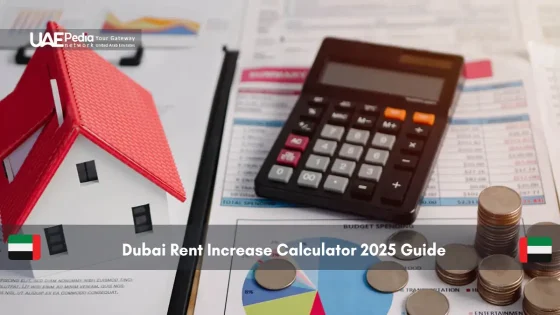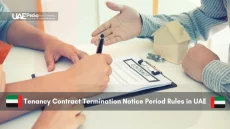Did you know over 60% of transactions in one major Middle Eastern market involve properties still on paper? This eye-opening detail reveals why understanding buyer protections matters more than ever.
New regulations are reshaping how investors approach off-plan purchases across the United Arab Emirates. These changes aim to create fairer ground for both parties in transactions – especially when unexpected hurdles arise.
We’ve teamed up with local experts to break down what you need to know about deposits, legal fees, and contract terms. Whether you’re eyeing your first investment or expanding your portfolio, grasping these details could mean the difference between smooth sailing and rough waters.
The upcoming 2025 regulations introduce clearer timelines for reconsideration periods, giving buyers breathing room after signing. Our guide walks through:
- Essential contract clauses affecting your rights
- Financial safeguards against sudden market shifts
- Cultural considerations in Emirati business practices
Think of this as your cheat sheet for confident decision-making – no law degree required. Let’s unpack these changes together, like friends sharing insights over steaming cups of karak chai.
The Dubai Property Cooling Off Period introduces a 14-day reconsideration window for off-plan contracts, mandated under the 2025 regulations. It applies to any purchase where the property remains under construction and allows buyers to withdraw without penalty, provided they submit a formal notice within the period. The framework standardizes contract clauses, escrow requirements and refund timelines, and aligns oversight between the Dubai Land Department and DIFC courts to ensure consistent application.
To invoke the cooling-off right, buyers must use the prescribed termination form and adhere to deadlines; failure to comply typically results in forfeiture of the initial deposit. Sellers are obliged to process refunds—usually within 30–45 days—and maintain transparent records of service charges and transfer conditions. The mechanism balances buyer protection against market volatility while preserving contractual certainty for developers.
Understanding the Dubai Property Cooling Off Period
Imagine signing a contract and then discovering hidden details—now you have two weeks to rethink. This safety net lets buyers in certain markets pause and reassess before committing fully. Let’s unpack what this means for you.
Your Two-Week Safety Net
The 14-day window gives you breathing room after signing. You can withdraw penalty-free if plans change or doubts arise. One legal expert puts it simply: “It’s like a trial run for major financial commitments—use it to verify everything matches the brochure promises.”
Balancing Freedom and Limits
Key advantages include:
- Time to inspect units or compare similar listings
- Protection against rushed decisions during market spikes
- Clear refund processes if expectations aren’t met
But consider this: prices might shift if you exit during high demand. Practices here differ from Europe’s 30-day windows or Asia’s stricter forfeiture rules. Picture walking away from a waterfront unit because the view isn’t what you envisioned—this clause makes that possible.
Both parties have responsibilities. Sellers must honor refund rights, while buyers should communicate decisions promptly. It’s a dance of trust—one that keeps the real estate ecosystem fair for everyone involved.
Regulatory Landscape and Key Authorities
Navigating foreign property laws feels like deciphering hieroglyphics without a guide—until now. The Emirates’ system thrives on collaboration between guardians of fairness. Let’s meet the players keeping transactions transparent.
Dubai Land Department and RERA now require developer pre-approvals with verified land ownership and financing proof to minimize project delaysRef.: “PSI Blog. (2025). Dubai Real Estate Laws & Regulations in 2025: An Investor’s Guide. PSI Blog.” [!]
Guardians of Fair Play
The Dubai Land Department acts as both referee and coach in real estate deals. They verify contracts, manage land ownership registration, and mediate disputes. One industry insider compares them to “air traffic controllers—ensuring every deal lands safely.”
Estate regulatory bodies work alongside the land department, setting service charge benchmarks and reviewing development plans. Their joint efforts create what locals call amana—a system built on trust.
Rules That Build Confidence
Service charges here aren’t afterthoughts. Laws require developers to disclose annual fees upfront—usually covering security, pools, and building upkeep. Think of it like HOA dues with desert flair.
Developers must hold buyer payments in mandatory escrow accounts, ensuring funds are released only upon verified project milestonesRef.: “BetterInformed Team. (2025). Understanding Cooling-Off Periods in Dubai Off-Plan Property Contracts. BetterInformed Blog.” [!]
Three pillars uphold the legal framework:
- Mandatory escrow accounts for off-plan projects
- Standardized cooling-off clauses (yes, even here!)
- Penalties for delayed handovers
When DIFC courts partner with the Dubai Land Department, you get hybrid oversight—part global standards, part local wisdom. It’s the regulatory equivalent of serving karak chai in a crystal glass.
In June 2024, the Dubai Land Department imposed AED 500,000 fines on three developers for off-plan regulations breaches, highlighting the legal risks of non-complianceRef.: “Darwish, M. (2025). Protecting Yourself as a Buyer: Understanding Off-Plan Property Risks in Dubai. Muhami.” [!]
Exploring the “dubai property cooling off period” in Practice
Picture this: You’ve just signed paperwork for a sun-drenched apartment, only to spot a clause about balcony maintenance fees buried on page 17. Contracts here work like desert mirages—clear from afar, but details matter up close.
Contract Terms and Conditions Explained
Three elements shape every agreement:
| Clause Type | What It Means | Why It Matters |
|---|---|---|
| Effective Date | When obligations begin | Determines payment deadlines |
| Termination Window | Days allowed for withdrawal | Your escape hatch if plans change |
| Transfer Conditions | How rights shift post-cancellation | Affects resale opportunities |
One developer we spoke with shared: “We treat contracts like camel saddles—they must fit both rider and beast.” Look for expiration dates near signature boxes—these often lock in price guarantees.
Withdrawal Rights and Cooling Off Details
Your 14-day safety net isn’t automatic. Contracts require written notice using specific forms—like sending a registered letter instead of a WhatsApp message. Miss the cutoff by a day? You’ll likely forfeit deposits.
Key tips from legal advisors:
- Circle termination deadlines in red
- Confirm refund timelines (usually 30-45 days)
- Verify if transfer fees apply when backing out
Remember: Terms conditions vary between towers and townhouses. A beachfront unit might have stricter transfer rules than a suburban villa. Always ask for the faseeh—the plain-language summary—before initialing anything.
Read More:
Buyer’s Guide: Payment Processes and Contract Essentials
Money talks, but in real estate, it’s all about how you pay. Let’s unpack the financial dance between buyers, sellers, and safeguards that keep transactions fair.
Payment Methods and Escrow Arrangements
Most deals here flow through bank transfers or manager’s checks—think of them as golden tickets for securing units. Down payments typically range from 10% to 25%, with installments spread across construction milestones. One developer’s advice sticks: “Treat escrow accounts like a desert traveler’s water stash—untouchable until you reach the oasis of handover.”
Agent fees usually hover around 2%, while legal costs add another 1-3% to your budget. These aren’t hidden surprises if you review contracts line by line.
Off-plan payment plans typically deploy staged installments—5 – 10 % booking, 40 – 60 % during construction, and 10 – 20 % on handover—to align cash flows with project timelinesRef.: “Wealth Consulting Team. (2025). Investing in Dubai Off-Plan Property: A Practical Guide for 2025. Wealth Consulting.” [!]
Obligations, Deposits, and Penalties
Miss a payment deadline? Prepare for monthly penalties of 1-2% on overdue amounts. Sellers can’t charge arbitrary fines—rules cap consequences to protect both sides. A seasoned advisor shared: “Your contract is the compass; follow its directions to avoid getting lost in financial dunes.”
Always demand stamped receipts for every dirham paid. If financing falls through, notify the seller immediately—some agreements allow extensions if communicated early.
Real estate agents act as your desert guides here. They’ll explain timelines, flag unusual clauses, and ensure you’re not signing promises you can’t keep. Think of them as human GPS systems for the property purchase process.
Navigating Risks, Pitfalls, and Dispute Resolution
Walking through a sandstorm without goggles—that’s how some describe unexpected challenges in agreements. Let’s map out common pitfalls and how to steer clear.
Identifying Common Transactional Risks
Three traps catch buyers off guard:
- Hidden defects like plumbing issues discovered post-purchase
- Vague contract terms about maintenance charges
- Deposit forfeiture clauses triggered by minor delays
One legal advisor compares contracts to desert wells: “What you see on the surface isn’t always what lies beneath.” Always have a lawyer review documents before signing.
Steps to Resolve Disputes and Protect Your Investment
When tensions rise between buyer and seller, follow this path:
- Gather evidence—photos, emails, payment receipts
- Request mediation through the estate regulatory authority
- File formal claims if negotiations stall
The regulatory body acts as neutral ground, reviewing transfer conditions and unexpected charges. Their teams often resolve issues within 60 days.
Remember: Document every conversation. As one veteran investor notes, “Paper trails shine brighter than promises in dispute resolutions.” Stay proactive, and you’ll navigate these dunes like a seasoned Bedouin.
Preparing for Future Changes in Dubai Real Estate
The sands of regulation are shifting in the Emirates’ real estate markets—and 2025 promises smarter safeguards for savvy investors. Let’s explore what’s brewing behind closed majlis doors and how to ride these changes like a pro.
Emerging Regulation Trends for 2025
Three key updates will reshape transactions:
| Area | Current Practice | 2025 Change |
|---|---|---|
| Contract Terms | Flexible negotiation windows | Standardized timelines for all parties |
| Escrow Rules | Project-specific accounts | Centralized tracking system |
| Dispute Resolution | 60-day process | 45-day expedited reviews |
A legal advisor we spoke with quipped: “These updates are like adding seatbelts to desert dune racing—same thrill, better protection.” New documentation requirements will demand deeper due diligence on service charges and ownership histories.
Smart Moves for Global Investors
US-based buyers should note: Emirates markets now favor local partnerships. Here’s how to adapt:
- Hire bilingual estate agents familiar with both Common Law and Arab Emirates practices
- Request “sunset clauses” in sale agreements to address construction delays
- Verify if properties fall under freehold or leasehold areas
Market dynamics suggest prices in high-demand areas might stabilize post-2025. One developer shared: “Think of regulations as quality filters—they’ll separate mirages from genuine oases.”
Three pro tips for international parties:
- Subscribe to regulatory body newsletters
- Attend virtual Q&A sessions with authorities
- Build relationships with local notaries early
Remember—staying ahead means treating regulations as roadmaps, not roadblocks. Partner with experts who’ve navigated these sands before, and your investment journey will be smoother than a camel’s stride at sunset.
Check out the below:
Final Considerations for a Successful Property Investment
Navigating real estate investments here feels like crossing dunes—exciting but requiring the right tools. Let’s pack your essentials for the journey ahead.
Three pillars support smart decisions: understanding local law, verifying ownership histories, and tracking payment timelines. The 14-day reconsideration window acts as your compass—use it to confirm unit details match promises. We’ve seen buyers avoid costly oversights by double-checking service fees and transfer conditions during this grace period.
Always work with licensed estate agents who speak both market trends and cultural nuances. They’ll help decode contract terms faster than you can say “shukran.” Remember: stamped receipts and written confirmations are your best allies if seller disputes arise.
Before signing, ask yourself:
- Have I reviewed all registration documents?
- Do conditions align with UAE standards?
- What’s Plan B if financing falls through?
Treat due diligence like packing water for a desert trek—better to have extra than run dry. Bookmark key sections of this guide, then step forward with the confidence of someone who’s mapped every oasis and quicksand patch. Your investment adventure starts now.
It gives you 10 business days to reconsider a purchase after signing a contract. During this window, you can withdraw without losing your deposit—unless the property is auctioned, off-plan, or purchased at a public event. Always verify terms with the Dubai Land Department (DLD) first.
The Real Estate Regulatory Authority (RERA) sets guidelines for service fees, ensuring they align with community standards. Developers must disclose these charges upfront, and disputes can be filed through the DLD’s dedicated portal or app for transparent resolution.
No—once a sales agreement is registered, sellers face strict penalties for withdrawing. If they cancel without valid reasons (like non-payment), buyers can claim compensation up to 10% of the property’s value through Dubai’s Real Estate Dispute Committee.
Yes! RERA requires developers to use escrow accounts for off-plan projects. Your payments are protected until construction milestones are met, reducing risks like delays or fund mismanagement. Always confirm the account is RERA-approved before transferring funds.
Late fees typically apply, often 1% monthly on overdue amounts. Repeated defaults can lead to contract termination and loss of deposits. Negotiate grace periods upfront, and consider setting automatic reminders to avoid penalties.
Start by reviewing the DLD’s standard contract templates—any deviations should raise red flags. If clauses seem unclear or excessive, consult a registered real estate lawyer. The DLD’s Tayseer platform also offers free legal consultations for eligible cases.
Possibly. Dubai’s push for net-zero buildings may introduce green certification requirements or retrofitting fees. Stay updated via RERA’s newsletters, and factor potential eco-upgrades into long-term budgets—especially for older villas or commercial spaces.
Absolutely. While Dubai’s laws are investor-friendly, nuances like inheritance rules or freehold vs. leasehold distinctions can trip up international buyers. A DLD-licensed attorney ensures compliance and helps navigate Arabic-language documents smoothly.



















